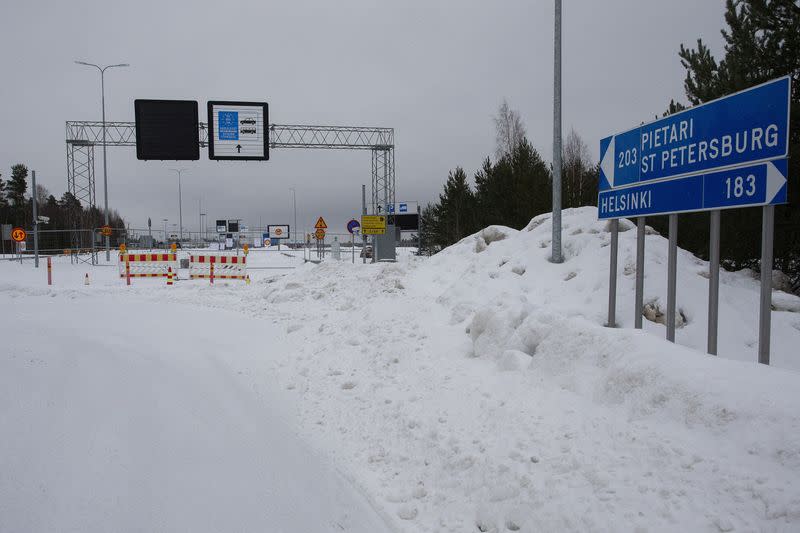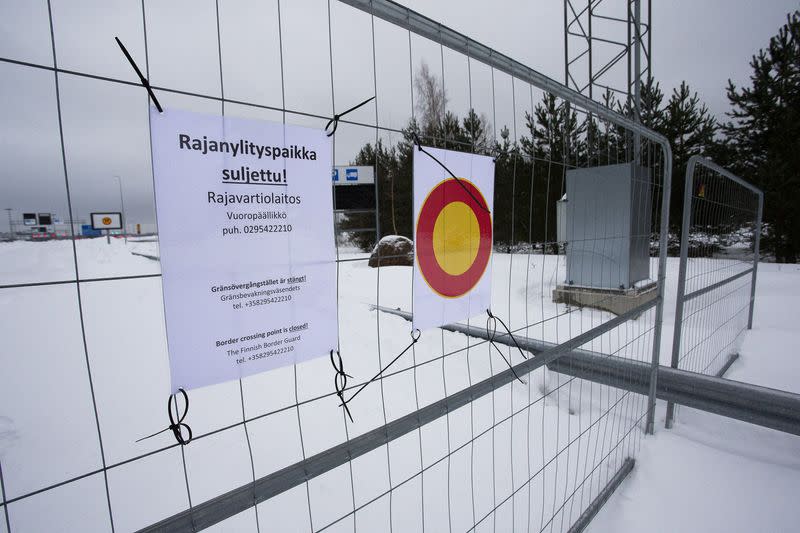Finland plans to use reservists to patrol border with Russia
HELSINKI (Reuters) - Finland plans to change its conscription rules to allow thousands of reservists to help patrol its border with Russia should there be a sudden wave of migrants, the government said on Wednesday.
Finns who have completed military service in the border forces could be called up to patrol the Nordic country's border with Russia in exceptional circumstances, the government said in a law proposal.
Finland, which joined the NATO military alliance in April last year, has accused Moscow of weaponising migration against the Nordic nation, an assertion the Kremlin denies.
Finland shut its 1,340 kilometre long border with Russia late last year amid a growing number of arrivals from third countries such as Syria and Somalia via Russia.
Some 1,300 asylum seekers crossed the border from Russia to Finland last year compared with less than 40 this year after the passenger crossings were shut, Border Guard data showed.
But the Finnish government fears the phenomenon it calls "a hybrid attack by Russia" could restart at any moment and is preparing legislation to deal with the threat.
"With the changed security situation, we need to complement existing methods with new ways to maintain border security," Defence Minister Antti Hakkanen said in a statement.
Finland has a conscription army, meaning military service is compulsory for men. More than 10,000 conscripts have been trained by the Border Guard, while a fourth of them are staff border guards, the government said.
The rest, roughly 7,500 servicemen, have pursued other civilian careers. Under existing legislation they remain as reservists that can be urgently called up to service in a case of a military threat to border security but not to counter migration.
The proposal will be put to a vote in the parliament where the right-wing government holds majority.
The Finnish government has also drafted a so-called pushback law that would allow border guards to turn away asylum seekers on the Finnish-Russian border without receiving their asylum applications.
(Reporting by Essi Lehto and Anne Kauranen in Helsinki; editing by Christina Fincher)


